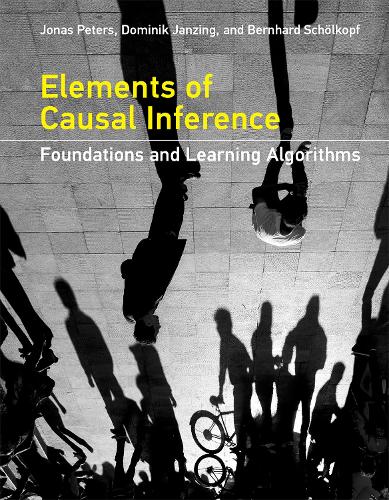
Elements of Causal Inference: Foundations and Learning Algorithms
(Hardback)
Publishing Details
Elements of Causal Inference: Foundations and Learning Algorithms
By (Author) Jonas Peters
By (author) Dominik Janzing
By (author) Bernhard Schlkopf
MIT Press Ltd
MIT Press
29th November 2017
United States
Classifications
Tertiary Education
Non Fiction
Neural networks and fuzzy systems
Mobile and handheld device programming / Apps programming
006.31
Physical Properties
Hardback
288
Width 178mm, Height 229mm, Spine 16mm
Description
A concise and self-contained introduction to causal inference, increasingly important in data science and machine learning.The mathematization of causality is a relatively recent development, and has become increasingly important in data science and machine learning. This book offers a self-contained and concise introduction to causal models and how to learn them from data. After explaining the need for causal models and discussing some of the principles underlying causal inference, the book teaches readers how to use causal models- how to compute intervention distributions, how to infer causal models from observational and interventional data, and how causal ideas could be exploited for classical machine learning problems. All of these topics are discussed first in terms of two variables and then in the more general multivariate case. The bivariate case turns out to be a particularly hard problem for causal learning because there are no conditional independences as used by classical methods for solving multivariate cases. The authors consider analyzing statistical asymmetries between cause and effect to be highly instructive, and they report on their decade of intensive research into this problem. The book is accessible to readers with a background in machine learning or statistics, and can be used in graduate courses or as a reference for researchers. The text includes code snippets that can be copied and pasted, exercises, and an appendix with a summary of the most important technical concepts.
Author Bio
Jonas Peters is Associate Professor of Statistics at the University of Copenhagen. Dominik Janzing is a Senior Research Scientist at the Max Planck Institute for Intelligent Systems in T bingen, Germany. Bernhard Sch lkopf is Director at the Max Planck Institute for Intelligent Systems in T bingen, Germany. He is coauthor of Learning with Kernels (2002) and is a coeditor of Advances in Kernel Methods- Support Vector Learning (1998), Advances in Large-Margin Classifiers (2000), and Kernel Methods in Computational Biology (2004), all published by the MIT Press.
